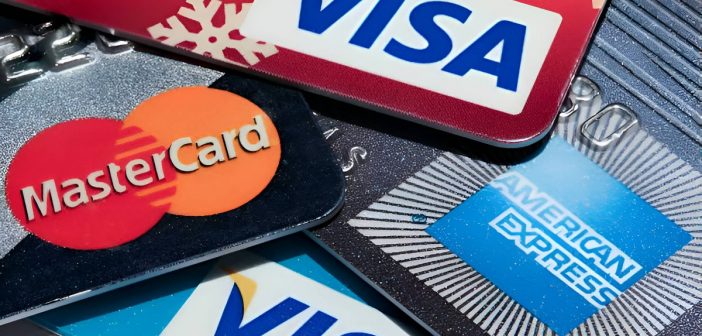For Indians venturing abroad, navigating foreign currency can be a daunting task. Whether it’s a dream vacation or a life-changing study program, managing finances efficiently becomes paramount. Two popular options emerge – forex cards and foreign currency cards (travel cards issued by Indian banks). Let’s delve into the intricacies of both to help you decide which one best suits your needs.
Forex Cards: A Prepaid Paradise
A forex card, essentially a prepaid travel card, allows you to load a specific amount of foreign currency onto the card in advance. Functioning like a debit card, you can use it for transactions worldwide wherever Mastercard or Visa logos are displayed. Here’s a breakdown of its advantages and limitations:
Pros:
- Fixed Exchange Rates: Forex cards lock in the exchange rate at the time of loading, shielding you from currency fluctuations. This provides budgeting clarity, especially for extended stays.
- Wide Acceptance: Most forex cards are powered by Visa or Mastercard, ensuring global acceptance at ATMs, restaurants, and stores.
- Enhanced Security: Forex cards offer PIN protection and can be easily blocked in case of loss or theft, minimizing financial risk compared to carrying cash.
- Budget Control: By loading a specific amount, you can manage your spending effectively and avoid overspending temptations associated with credit cards.
- Convenient Features: Several forex cards offer online reloading options and real-time transaction tracking, simplifying expense management.
Cons:
- Fees and Charges: Forex cards typically come with issuance fees, reloading fees, and foreign transaction fees. While generally lower than credit cards, these fees can add up depending on your usage.
- Limited Currency Options: Not all forex cards offer a wide range of currencies. Choose a card that caters to the specific currency you’ll be using at your destination.
- Unused Funds: Unused foreign currency on the card might need to be converted back to INR upon return, potentially incurring additional exchange rate charges.
- Lower Spending Limits: Some forex cards have lower spending limits compared to credit cards, which might be restrictive for high-value purchases.
Foreign Currency Cards: Banking on Convenience
Foreign currency cards, often referred to as travel cards offered by Indian banks, link directly to your existing bank account. These cards allow you to spend money from your INR account abroad, converted to the local currency at the point of transaction. Here’s a closer look at their strengths and weaknesses:
Pros:
- No Loading Fees: Unlike forex cards, foreign currency cards typically don’t have upfront loading fees.
- Direct Access to Funds: You have the flexibility to spend directly from your bank account, eliminating the need to pre-load currency.
- Wide ATM Network: Foreign currency cards often leverage your bank’s ATM network abroad, potentially offering wider ATM access compared to some forex cards.
- Emergency Cash Access: In case of emergencies, you can withdraw local currency from ATMs using your foreign currency card.
Cons:
- Fluctuating Exchange Rates: The exchange rate applied to transactions with foreign currency cards varies based on the daily market rate. This can make budgeting less predictable.
- Foreign Transaction Fees: Banks typically charge foreign transaction fees (FTFs) for using your foreign currency card abroad. These fees can significantly impact your overall spending.
- Lower Security Features: While offering PIN protection, foreign currency cards might not have the same level of security features compared to forex cards, especially regarding lost or stolen cards.
- Limited Spending Limits: Similar to forex cards, some foreign currency cards might have spending limits that could be restrictive for high-value purchases.
Choosing Your Champion: A Tailored Approach
The ideal choice between a forex card and a foreign currency card depends on your specific travel or study plans. Here are some key factors to consider:
- Trip Duration: For short trips with a clear spending budget, forex cards with their fixed exchange rates offer better control. For longer stays with fluctuating expenses, foreign currency cards might be more suitable.
- Spending Habits: If you prefer to meticulously plan your expenses, a forex card with its prepaid nature aligns well. For spontaneous travelers, foreign currency cards provide greater flexibility.
- Currency Usage: Ensure the card you choose offers the specific currency you’ll be using at your destination.
- Fees and Charges: Carefully compare the fees associated with each card, including issuance fees, reloading fees, foreign transaction fees, and ATM withdrawal charges.
Beyond the Binary: Additional Considerations
- Explore Multi-Currency Cards: Some forex cards allow you to load multiple currencies, offering greater flexibility for multi-destination trips.
- Consider Travel Insurance: Regardless of your card choice, travel insurance protects
against unforeseen medical emergencies, trip cancellations, and lost luggage, providing valuable peace of mind.
- Credit Cards: While not the primary focus of this comparison, credit cards can be a viable option for frequent travelers who can leverage reward programs and benefits. However, be mindful of often high foreign transaction fees associated with credit cards.
The Final Whistle: A Wise Financial Choice
The decision between a forex card and a foreign currency card boils down to your individual travel style and financial priorities. By carefully evaluating your needs, comparing fees, and considering additional factors, you can choose the card that empowers you to navigate the world financially with confidence. Remember, a little research and planning can go a long way in ensuring a smooth and budget-friendly experience abroad, allowing you to focus on creating lasting memories.






